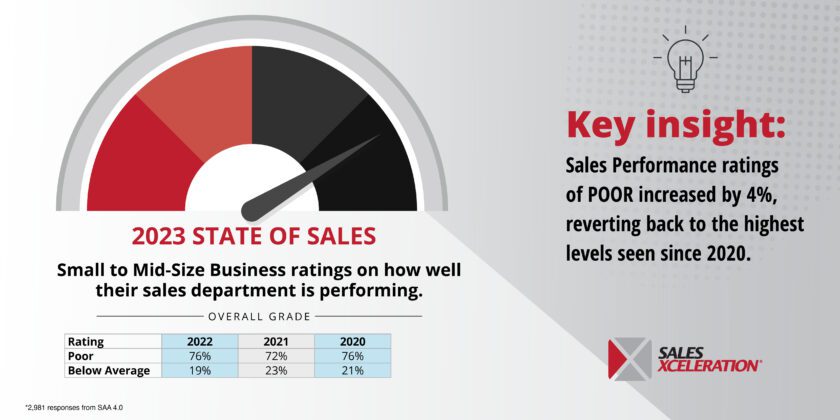Understanding the intricacies of sales plans, processes, and methodologies is beneficial and crucial for sustained growth and success in B2B sales. This deep dive offers invaluable insights for salespeople, sales managers, and CEOs of small companies looking to refine their sales strategies and enhance management capabilities.
A sales plan is more than just setting targets; it’s about crafting a roadmap to market success, focusing on who you’re engaging with and the value you bring to the table. It’s about plotting a course that not only aims for success but also navigates potential failures. For small business owners and sales leaders, reevaluating your sales plan and methodologies isn’t just about affirming what’s working; it’s a critical look at how to adapt and thrive in a competitive landscape.
Small companies, in particular, face the unique challenge of scaling their sales efforts nationally or even internationally. In reality, capturing a significant market share in a billion-dollar industry requires more than just having a “good” sales organization. It demands a strategic, well-oiled machine capable of outpacing competitors and captivating a larger audience. This is where the true value of assessing your sales strategy comes into play. By benchmarking against industry leaders and innovators, companies can identify gaps in their approach and areas ripe for improvement.
Transitioning from a solopreneur or founder-led sales approach to a more structured sales organization is a pivotal step for many small businesses. This transition isn’t just about delegation; it’s about envisioning your company’s future and laying down the groundwork to achieve that vision. Whether the goal is to sell the company or to step back from day-to-day sales activities, planning and infrastructure are key.
Moreover, the value a company brings to its customers is paramount. This value perception drives sales and, ultimately, the company’s success. Sales teams need to continuously evolve, ensuring that they are not only meeting but exceeding customer expectations. Therefore, assessing a sales strategy becomes an ongoing process and is integral to maintaining and enhancing this value.
The discussions around sales strategy assessment, transitioning to sales management, and the importance of continuously delivering value underscore a fundamental truth in sales: success is a journey, not a destination. Companies that regularly assess their sales strategy remain open to learning and adapting, and focus on delivering unmatched value are the ones that thrive in the ever-competitive marketplace.
For salespeople, sales managers, and CEOs alike, the takeaway is clear: your sales strategy’s assessment and continuous improvement are not optional; they are essential to staying relevant, competitive, and successful in today’s business landscape.
Immediate actions that the reader can pursue today
Here are three immediate action items that readers can undertake today to refine their sales strategies, enhance management capabilities, and ensure the sustained growth and success of their B2B sales efforts:
1. Conduct a Sales Plan Audit
Action Steps:
- Evaluate Current Sales Plan: Look closely at your current sales plan. Assess its alignment with your company’s strategic goals, market positioning, and the value proposition you offer to your clients. Identify areas where your plan excels and where it falls short.
- Benchmark Against Industry Leaders: Compare your sales strategies, processes, and outcomes with those of industry leaders and innovators. This comparison will help you spot gaps and opportunities for improvement.
- Develop Improvement Plan: Create a detailed plan to address the identified gaps based on your audit findings. This plan should include specific actions, timelines, and responsible parties to ensure implementation.
2. Transition Towards Structured Sales Management
Action Steps:
- Define Your Sales Infrastructure: Outline the structure of your desired sales organization. This includes roles and responsibilities, sales processes, and support systems required for efficient operation.
- Plan for Scale: Consider what tools, technologies, and training your sales team will need to scale up their efforts, both nationally and internationally. This could include CRM software, sales training programs, and scalable sales processes.
- Implement Gradually: Start the transition by implementing changes in phases. Monitor the impact of these changes on sales performance and team morale. Adjust your approach based on feedback and results to ensure a smooth transition.
3. Enhance Customer Value Perception
Action Steps:
- Understand Your Customers: Conduct market research to deepen your understanding of your customers’ needs, preferences, and pain points. Use this information to refine your value proposition.
- Innovate Continuously: Encourage your team to regularly brainstorm and implement new ways to deliver and communicate value to your customers. This could involve product improvements, new service offerings, or enhanced customer service strategies.
- Measure and Adjust: Implement mechanisms to measure how customers perceive your value. Use customer feedback, surveys, and sales data to continuously adjust your strategies for improving customer satisfaction and loyalty.
Implementing these action items requires a methodical and disciplined approach, but the payoff can be significant. By auditing your sales plan, transitioning towards a more structured sales management system, and enhancing the perception of the value you offer to customers, you can position your company for greater success in the competitive B2B marketplace. Remember, the goal is to meet customer expectations and exceed them consistently, thereby ensuring your company’s growth and long-term success.


